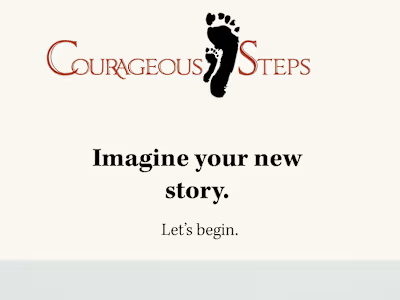Online Article: Life’s Better Teacher - Success or Failure?

“We learn from failure, not from success!” ~Bram Stoker in Dracula
We have all been victims of procrastination at some point. Whatever the reason or motivations we use to justify avoiding work, we’ve all fallen to its alluring, siren-like call. This is one of those times for me.
The focus of my current distraction was an interview I saw with Ed Sheeran and Howard Stern. Sheeran spoke about his own failures and successes, noting:
“You learn nothing from success. Nothing. You learn everything from the failures, and this is the thing that annoys me about the state the world is in at the moment. No one talks about failure anymore, whereas success, everyone shouts about it. But there’s nothing in success. Success happens from failing hundreds of times.”
Think about that for a moment. Think about when you won, when you succeeded, when you failed, when you broke down. When did you learn more? Better yet, what did you want to tell people about?
Personally, I have often thought — clearly in hindsight and not in the moment — that my biggest lessons in life came from failures, from the times I lost, from the times I learned to walk away.
Psychological hardiness is a byproduct of failure, and its creation isn’t that much different than a diamond. With some time, pressure, and adjustment, things get clearer.
Studies on Failure
In 2019, Ayelet Fishbach and Lauren Eskreis-Winkler from the University of Chicago’s Booth School of Business conducted research on failure across three domains (professional, linguistic, and social) and wrote that while our “society celebrates failure as a teachable moment,” failure underminded learning. Why? They wrote in the journal Psychological Science (Nov., 2019) that:
Failure is ego threatening, which causes people to tune out. Participants learned less from personal failure than from personal success, yet they learned just as much from other people’s failure as from others’ success. Thus, when ego concerns are muted, people tune in and learn from failure.
Ego. There it is, always getting in the way. Dwayne Johnson once said to check your ego at the door for a good reason.
Fishback and Eskreis-Winkler’s research centered around a motivation theory that argues that negative feedback undermines goal commitment. If we tune out during the moment of failure, it could be “the first step in a chain reaction that distances and discourages people from the goal they are pursuing.”
Fishback further stated that: “With more experiments, what we were able to see is that it’s really a matter of self-esteem…It just doesn’t feel good to fail, so people tune out.”
Well, that makes sense. It’s ingrained in us. We even have a natural negativity bias so we can look for and avoid things that go wrong.
We train to succeed, not fail. We raise our children to strive to do better, be better, feel good about themselves, and to make others feel good as well.
Since my background was in international education for many years, I had to wonder about the role culture plays in that goal-setting mechanism we have hard wired within us. A group of researchers from British Columbia, the University of Pennsylvania, Kyoto University, and Nara University conducted research on this topic roughly 20 years ago.
The authors (Heines et. al) wrote in the Journal of Personality and Social Psychology (2001) that culture can also affect our relationship with failure, noting that “North Americans who failed on a task persisted less on a follow-up task than those who succeeded. In contrast, Japanese who failed persisted more than those who succeeded. The Japanese pattern is evidence for a self-improving orientation: Failures highlight where corrective efforts are needed.”
This just leads me to more questions; one I will unpack for a later procrastination time. But if culture can play a role in our goal setting, which in turn can be affected by what we learn from failure or success, what else can influence how we handle it?
What about Mindset?
Stefan James wrote in a 2019 Forbes article that the difference between success and failure is all in your mindset. While different from the topic of which you learn from better, I wonder if mindset is applicable in the lesson, too.
James focused on the “why” and the “what” — why are you doing it and what is your motivation? What is the purpose behind your task? What’s your belief and the behavior that surrounds that belief? What does your commitment and focus look like? And…the tough one, how patient are you? Do you have that grit and are you learning from others’ mistakes?
Purpose, Grit, Patience, Belief. Those are like springboards — they launch us upward.
If you hate math and fail at a math test, you may not be as inclined to care about reviewing the results or where you went wrong afterwards.
However, if you think writers like Edgar Allen Poe, Jane Austen, Maya Angelou, or C.S. Lewis invoked feelings in you or painted a canvas in your mind with their words — you might be more inclined to read the responses from your rater afterwards. You might even be inclined to agree or openly disagree with them afterwards.
The point is, what elements are driving whether you are learning better from success or failure? Which direction are you finding yourself after a challenge?
Grit
Grit, though, it deserves a little more spotlight and is an incredibly interesting box to open. Angela Duckworth wrote a book (and TED talk here) on the power of grit and her research focused on who is successful and why. Her research team looked at things like:
1) Which military cadets at West Point Academy will return/ drop out?2) Which children would advance farther in competition at the national spelling bee?3) Which rookie teachers, who are in challenging districts, will still be here at the end of the year?4) Which salespeople will keep their jobs and who will earn the most?
Across these different areas, a particular “characteristic emerged as a significant predictor of success, and it wasn’t social intelligence. It wasn’t good looks, physical health, and it wasn’t IQ. It was grit. Grit is passion and perseverance for very long-term goals…grit is sticking with the future day in and day out.”
Grit reminds me of courage. Duckworth describes it as a marathon and not a sprint. In a world where instant gratification is attainable in many ways, grit is its opposing force.
When Duckworth did further research on schools and the graduation rates among its students in Chicago, she was asked how one build’s grit. She responded with:
“The honest answer is, I don’t know. What I do know is talent doesn’t make you gritty…so far, the best idea I’ve heard about building grit in kids is something called growth mindset.”
Growth mindset was developed at Stanford University, and centers around the belief that the ability to learn is not a fixed concept.
It changes with your effort and when kids see how the brain adjusts and grows from challenges, it makes them more inclined to persevere because they understand that failure is not, as Duckworth refers to it, “a permanent condition.” She admits that we need more than just a growth mindset though.
Is that more a part of a unique formula that helps us recover and learn from a setback? Is that more nurtured or is it in our nature?
If Only It Were Simple
William Ockham had a problem-solving principle named after him — one that states that the simplest solution is almost always the best one. I don’t think this is one of them.
We are bound to fail in life, and we are also bound to work towards not failing. Essentially how we get up, how we keep moving, how we keep goal setting, isn’t simple. I believe it is both nurtured and in our nature.
The spice that makes up our own unique special sauce, well it’s special. It seems that grit, courage, and perseverance are key ingredients though.
I wish my children and family success. I wish you all success. Shoot, I wish success for myself, too. But, if failure is the path to get you where you need to be and develop those roots that allow your branches to grow higher, then I wish you failure too.
What I wish for the most, through grit or courage or perseverance, is that you don’t give up.
There’s a poem by Edgar Allen Guest called “Don’t Quit” and it manages to appear in my life at interesting times. My high school track coach posted it in our locker room, as Lord knows teenagers need a reminder not to quit when things are hard, and then my son had to memorize it in his 4th grade English class.
The last stanza summarizes it well, so I will wrap my thoughts with that. Success or failure, whatever happens, please just don’t quit.
Success is failure turned inside out-
The silver tint of the clouds of doubt,
And you never can tell how close you are,
It may be near when it seems so far,
So stick to the fight when you’re hardest hit-
It’s when things seem worst that you must not quit.
Like this project
Posted Jul 5, 2023
Online article that dives into some of the science behind how we learn better - through our successes or failures. Article is an example of my writing style.
Likes
0
Views
17







